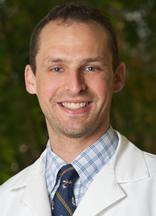Our Scholars
Stephanie Bielas, Ph.D.
Our research interests focus on identifying genetic causes of neurodevelopmental disorders and understanding the resulting cell and molecular mechanisms of disease. Modeling pathology not only informs us about disease mechanisms, but also sheds light on novel features of normal brain development. A major challenge to understanding human neurodevelopmental disorders has been the lack of affected tissue. However, the recent addition of induced pluripotent stem cells (iPSC) to the human disease modeling toolbox has the potential to greatly expand our understanding of human disease mechanisms. Well characterized, human based modeling systems, are also an invaluable resource for interpreting the clinical significance of deleterious alleles and human genomic variation.
Uhn-Soo Cho, Ph.D.
Our laboratory focuses on elucidating the important biological events using complementary structural and biochemical approaches. Using the x-ray protein crystallography as a primary tool, we aim to determine the structures of proteins and/or protein complexes at atomic-level and thereby elucidate their biological functions based on the protein structure and following biochemical studies. In addition, we also employ other structural techniques, such as cryo-EM and NMR, to determine the structures of protein and/or protein complex as alternative approaches.
Shigeki Iwase, Ph.D.
Our primary research goal is to understand how the dynamic regulation of chromatin, the DNA-containing macromolecule, engages in brain development and function. The results of our studies will likely provide an important foundation for future treatments of cognitive disorders, such as intellectual disabilities (IDs).
Kenneth Kwan, Ph.D.
Evolution of the cerebral cortex is thought to underlie our species’ most remarkable capabilities. Miswiring of cortical circuitry can lead to disorders, including autism and schizophrenia, that affect the most distinctly human cognitive functions. Research in the Kwan laboratory is aimed at understanding the developmental processes that underlie cortical circuit assembly, their evolution during the emergence of human cognition, and their dysregulation in neurodevelopmental disorders.
Adam Lauring, M.D., Ph.D.
We study mechanisms of viral evolution and their relationship to transmission, pathogenesis, and antiviral resistance in infected hosts. Our lab performs both basic research on poliovirus evolution and translational studies of influenza transmission and vaccine escape.
Scott Tomlins, M.D., Ph.D.
Research in the Scott Tomlins lab utilizes integrative high-throughput approaches, including next generation sequencing, to molecularly profile genitourinary malignancies, including clinical subtyping of prostate cancer, as well as bladder and adrenocortical carcinoma.






